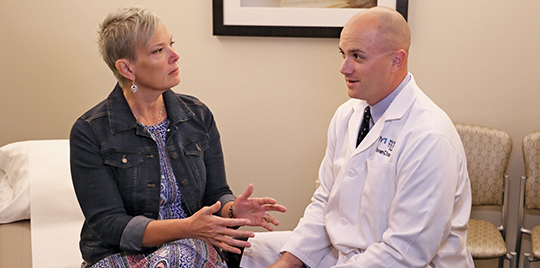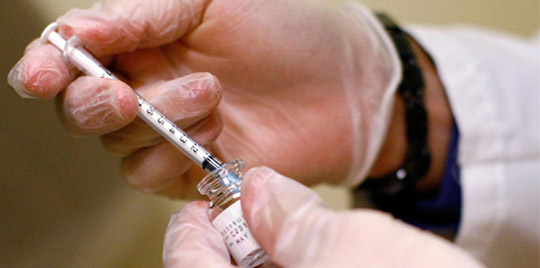
Migraine is a common debilitating disorder that greatly impacts many sufferers’ quality of home and work life. Thankfully, many new beneficial therapies are available.
Symptoms
Migraine attacks vary in symptoms, intensity and location. The pain may be:
- Felt on one side of the head and throbbing
- Moderate to severe in intensity
- Aggravated by physical activity
- Nausea and/or vomiting inducing
- Sensitive to light and sound
Treatment
The goal of therapy is to minimize the impact of migraine on the quality of the patient’s home and work life. Treatments include acute (as needed) and preventive options, depending on the frequency and severity of the migraines.
- Acute treatment options include older generation NSAIDs, analgesics, triptans and muscle relaxants, as well as the newer generation medications.
- Preventive treatment options include older generation antiepileptic, antidepressant and antihypertensive medications, along with newer generation therapies such as BOTOX® and CGRP blocking therapies (see below).
Neurostimulation devices are newer nonmedication options for both acute and preventive treatment.
Medications
Medication overuse headache – or MOH – is a common problem that results from increasing use of acute medications over time with diminishing benefit in patients with a preexisting headache syndrome such as migraine.
In the end, this leads to a headache syndrome that is more difficult to treat and increased disability.
Peptide Culprit
A peptide released from sensory nerves – calcitonin gene-related peptide (CGRP) – plays a critical role in causing migraine attacks. When CGRP levels increase, a cascade of events occurs leading to a migraine attack.
Several agents, known as CGRP blockers, have been shown to help prevent and reduce migraine frequency.
Natural Approaches
Natural approaches to treating and preventing migraine attacks include butterbur, co-enzyme Q10, magnesium and riboflavin.
FDA-approved devices that use electrical stimulation also are options for patients who are apprehensive about using medications for migraine treatment and prevention.
Physicians and staff with the Meritas Health Neurology Headache Clinic provide a high level of expertise for treatment of migraines and headaches. For more information, contact their office at 816.472.5157.
Explore More
Headaches Vs. Migraines: Know the Root of Your Head Pain
Watch Dr. Kosa’s Lunch & Learn on Fight Your Brain Pain.
Please note: due to a technical error, audio for this video begins at 00:27.



